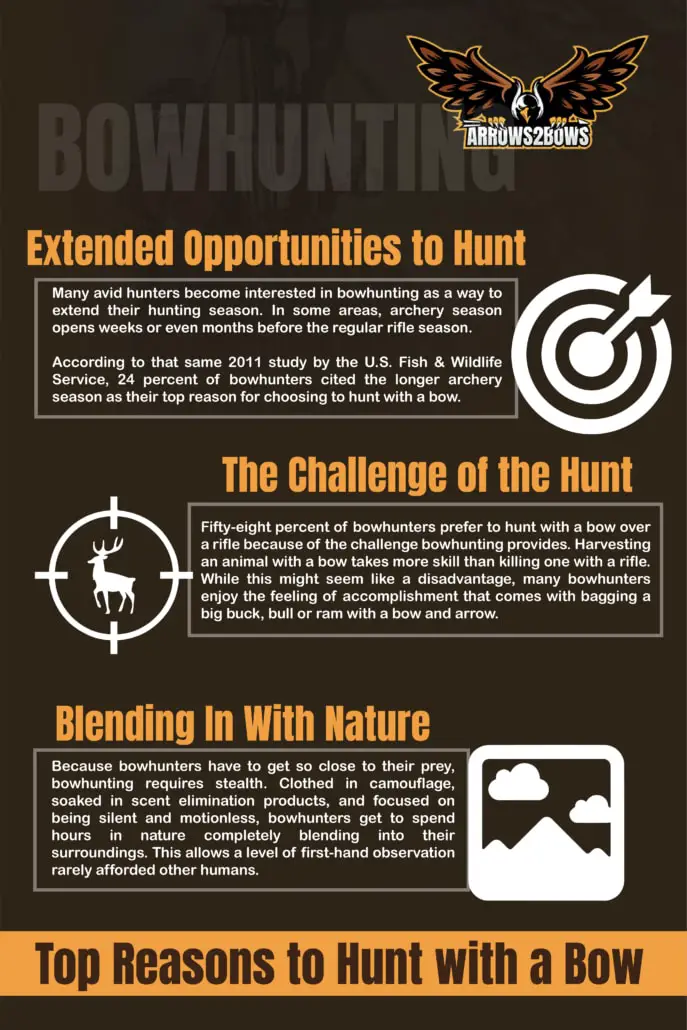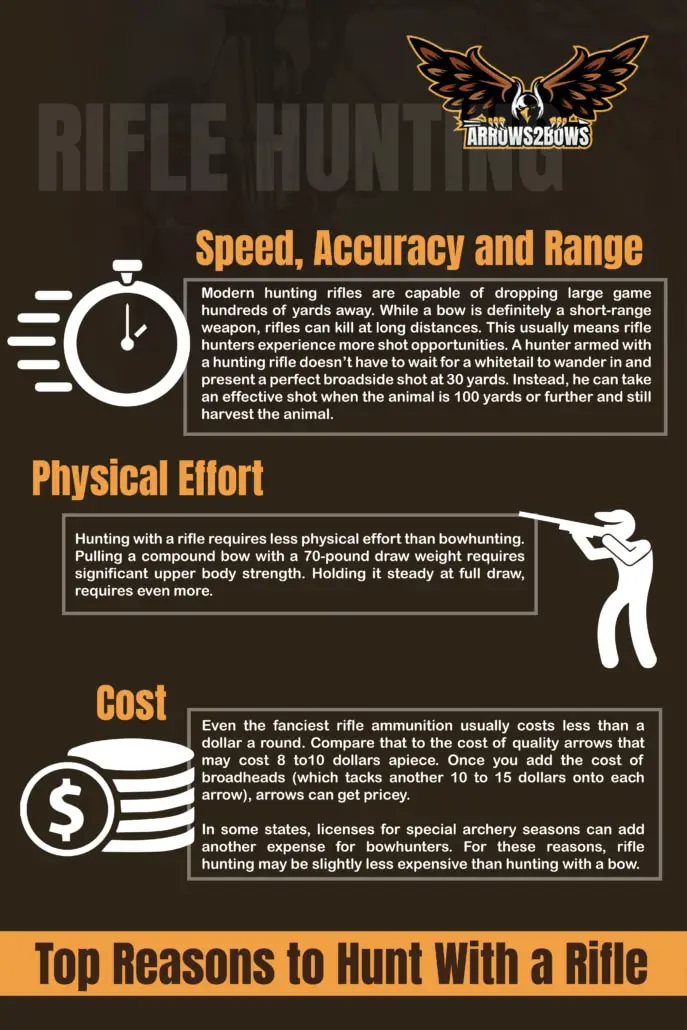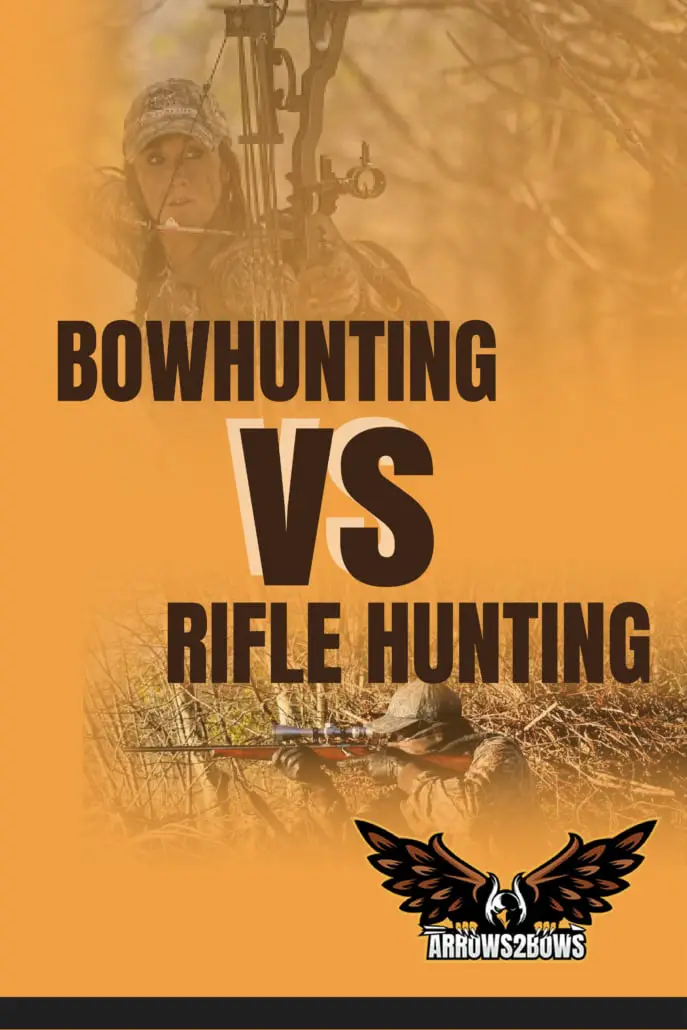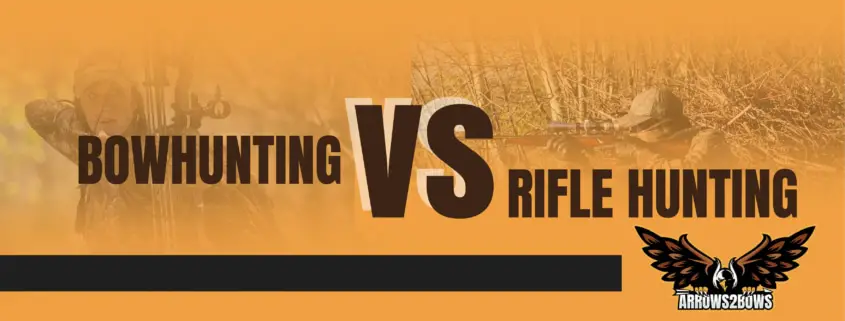Bowhunting vs Rifle Hunting
Hunting for food is a practice that can be traced back to the earliest roots of human life. Although hunting methods have changed over the centuries, the end goal remains the same: to provide meat for the family to eat.
Bowhunting, although an ancient tradition, has gained popularity in recent years. According to a 2011 survey conducted by the U.S. Fish & Wildlife Service, 33 percent of American hunters have hunted with a bow. Seventy-five percent of bowhunters also enjoy hunting with a firearm.
While both methods can be used to harvest most types of game, they require entirely different skill sets. Many hunters choose to use both hunting methods. However, for those trying to decide between the two, we’re going to outline some of the main differences. The information we’ve provided here is designed to help you gain a better understanding of these two popular hunting methods.
Top Reasons to Hunt with a Bow
There are many reasons hunters choose to harvest game using their archery skills. Here are just a few of the most popular.
Extended Opportunities to Hunt
Many avid hunters become interested in bowhunting as a way to extend their hunting season. In some areas, archery season opens weeks or even months before the regular rifle season.
According to that same 2011 study by the U.S. Fish & Wildlife Service, 24 percent of bowhunters cited the longer archery season as their top reason for choosing to hunt with a bow.
Another 11 percent of bowhunters report the earlier season as their main motivation. Because archery season often begins well before muzzleloader and rifle seasons, not only does it extend the hunting season, it also allows hunters to pursue game before tons of human competition hits the woods.
With fewer hunters in the woods, game feel less human pressure. This allows bowhunters to hunt animals that are less wary and act more naturally than during the regular hunting season.
As animals move around more freely, bowhunters can capitalize on this behavior to swing the hunting odds in their favor. By using the animals’ natural behaviors, bowhunters can set up stands in strategic places along regular travel routes to gain shot opportunities. Unpressured animals tend to be more relaxed. When not on high alert, they can be less frightened by unnatural scents and movement in the woods.
Also, whitetail deer and other big game animals become largely nocturnal when pressured during the regular hunting season. In the earliest days of archery season, before game adjust their behavior to avoid human contact, hunters are more likely to encounter game during daylight hours, when it is legal to shoot.
The Challenge of the Hunt
Fifty-eight percent of bowhunters prefer to hunt with a bow over a rifle because of the challenge bowhunting provides. Harvesting an animal with a bow takes more skill than killing one with a rifle. While this might seem like a disadvantage, many bowhunters enjoy the feeling of accomplishment that comes with bagging a big buck, bull or ram with a bow and arrow.
Even the best compound bows are far less accurate than any rifle. Because arrows travel at much slower velocities than bullets, they are more susceptible to wind drift. Arrows also drop rapidly over distance, which can cause major accuracy issues. This is why serious bowhunters spend hours practicing in the off-season.
Although some modern compound bows can shoot arrows up to 400 yards, the ideal distance for hunting is 40 yards or less. This means bowhunters must get up close and personal with their goal. Maintaining calm composure with your target at such close range requires patience, self-control and tons of skill.
These elements combine to make filling an archery tag feel like a greater accomplishment than taking an animal with a rifle.
Blending In With Nature
Because bowhunters have to get so close to their prey, bowhunting requires stealth. Clothed in camouflage, soaked in scent elimination products, and focused on being silent and motionless, bowhunters get to spend hours in nature completely blending into their surroundings. This allows a level of first-hand observation rarely afforded other humans.
Even when a bowhunter releases an arrow, it is far less shocking than shooting a rifle. Rifles create deafening noise and a shocking muzzle flash that immediately give away the hunter’s position, scaring all the wildlife in the area. Although even the quietest bows make some noise, that noise is minimal compared to a firearm. It isn’t unusual for animals to look up and then continue feeding after a bowhunter shoots, especially if his arrow misses his target.
Many bowhunters claim they like the natural peace and quiet of the woods in archery season as their main reason for choosing a bow over a rifle.

Top Reasons to Hunt With a Rifle
As exciting as bowhunting can be, some hunters prefer hunting with a rifle. Here are some of the top reasons to hunt with a firearm.
Speed, Accuracy and Range
Modern hunting rifles are capable of dropping large game hundreds of yards away. While a bow is definitely a short-range weapon, rifles can kill at long distances. This usually means rifle hunters experience more shot opportunities. A hunter armed with a hunting rifle doesn’t have to wait for a whitetail to wander in and present a perfect broadside shot at 30 yards. Instead, he can take an effective shot when the animal is 100 yards or further and still harvest the animal.
Because rifle bullets easily reach velocities in excess of 3000 feet per second, they are inherently more accurate. Bullets are less influenced by wind, and they drop less over distance than arrows. By nature, a rifle is far more accurate than a bow. Add on powerful magnifying rifle scopes, and rifles leave bows in the dust when it comes to accuracy.
As bullets travel at faster velocities, they also can cause extra damage when they hit their targets. Bullets can punch through thick hides and tough bones much easier than a broadhead. An expanding bullet also dumps a ton of energy into the target, creating a sort of shock wave that radiates through the animal’s soft tissue. As a result, a quality hunting bullet can create an enormous amount of internal damage, even if it slightly misses its mark.
Physical Effort
Hunting with a rifle requires less physical effort than bowhunting. Pulling a compound bow with a 70-pound draw weight requires significant upper body strength. Holding it steady at full draw, requires even more.
Shooting a rifle, especially one steadied on a bipod or tripod, requires much less strength. Even children can shoot big game with a rifle.
Bowhunting can often require extra hiking as well. Because bowhunters have to get close to their prey, it may take some physical effort to get to where the animals are located. On the other hand, some rifle hunters can drive their truck or a four-wheeler directly to a hunting blind. Because they can shoot animals beyond 100 yards, the noise of a vehicle doesn’t often hinder their hunting success.
Cost
Even the fanciest rifle ammunition usually costs less than a dollar a round. Compare that to the cost of quality arrows that may cost 8 to10 dollars apiece. Once you add the cost of broadheads (which tacks another 10 to 15 dollars onto each arrow), arrows can get pricey.
In some states, licenses for special archery seasons can add another expense for bowhunters. For these reasons, rifle hunting may be slightly less expensive than hunting with a bow.

Final Thoughts
So which is better – bowhunting or rifle hunting? It is not hard to argue that a rifle is the superior weapon. However, rifle hunting doesn’t provide the same experience bowhunting provides. Some hunters prefer the challenge of hunting with a bow. Others enjoy the extended hunting season. Experiencing the purity of nature and the solitude of the woods during archery season are other common reasons people fall in love with bowhunting.
Deciding which method of hunting is “better” depends mostly on personal preference. Guns and bows both have their place in the hunting world. If you’re having a hard time deciding, there’s no reason you can’t do both.




